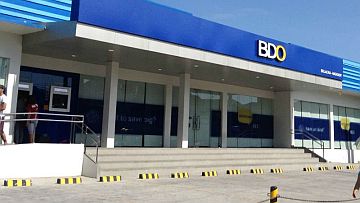
A BDO branch.
/Inquirer file photo
The country’s leading lender Banco de Oro Unibank reported on Friday that some of its automated teller machines (ATMs) may have been “potentially compromised,” resulting in paper losses for some clients.
But BDO assured the public that there was “no cause for alarm,” assuring that affected clients would get their money back.
BDO President Nestor Tan later texted Inquirer reporter Daxim Lucas that the situation is “nothing out of the ordinary.”
“ATMs are compromised every now and then, with skimming being the most common form. To protect our customers, we (banks) take the precautionary measure of proactively disabling the cards if we have reason to believe that they may have been compromised,” BDO said in a statement.
In skimming, culprits steal card credentials — usually using devices attached to ATM machines — and use them for unauthorized withdrawals.
BDO issued a statement following reported losses from some cardholders. This happened a week after the two-day glitch at another big bank, Bank of the Philippine Islands, that resulted in internal data error that bloated some people’s deposit accounts while reducing others’ accounts.
“Customers with unauthorized transactions may reach out to the bank via formal channels so that their cases may be properly investigated and, where confirmed as impacted, may be reimbursed,” BDO said.
“BDO would like to reassure the public that it exerts all efforts to protect its cardholders and their transactions,” it added.
“Issues on this, will be addressed with EMV (Europay Mastercard Visa) implementation. This is a security protocol, moving cards from magnetic stripes to chips, which will make them secure. It is just a matter of time until the industry completes the implementation.”
The Bangko Sentral ng Pilipinas has required the entire payment network of the Philippine banking system to migrate to EMV by the middle of 2018 or face a fine. It earlier set the deadline to migrate to EMV by January 1, 2017 but noted that some banks have not fully complied yet.